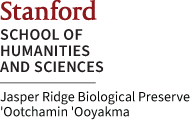Ismail S, Farner J, Couper L, Mordecai E, Lyberger K. 2023. Temperature and intraspecific variation affect host–parasite interactions. Oecologia. 2023 Nov 25:1-1. https://doi.org/10.1007/s00442-023-05481-z
Parasites play key roles in regulating aquatic ecosystems, yet the impact of climate warming on their ecology and disease transmission remains poorly understood. Isolating the effect of warming is challenging as transmission involves multiple interacting species and potential intraspecific variation in temperature responses of one or more of these species. Here, we leverage a wide-ranging mosquito species and its facultative parasite as a model system to investigate the impact of temperature on host–parasite interactions and disease transmission. We conducted a common garden experiment measuring parasite growth and infection rates at seven temperatures using 12 field-collected parasite populations and a single mosquito population. We find that both free-living growth rates and infection rates varied with temperature, which were highest at 18–24.5 °C and 13 °C, respectively. Further, we find intraspecific variation in peak performance temperature reflecting patterns of local thermal adaptation—parasite populations from warmer source environments typically had higher thermal optima for free-living growth rates. For infection rates, we found a significant interaction between parasite population and nonlinear effects of temperature. These findings underscore the need to consider both host and parasite thermal responses, as well as intraspecific variation in thermal responses, when predicting the impacts of climate change on disease in aquatic ecosystems. [link to publication]



